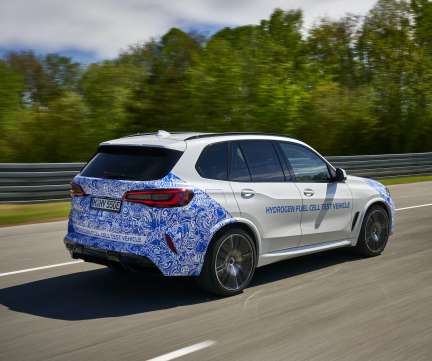BMW begins road testing of i Hydrogen NEXT; small-series production model in late 2022
Green Car Congress
JUNE 19, 2021
The BMW i Hydrogen NEXT uses fuel cells from the product development cooperation with the Toyota Motor Corporation. As a result, the system delivers an output of 275 kW/374 hp that corresponds exactly to that of the most powerful six-cylinder in-line gasoline engine currently used in BMW models.






































Let's personalize your content